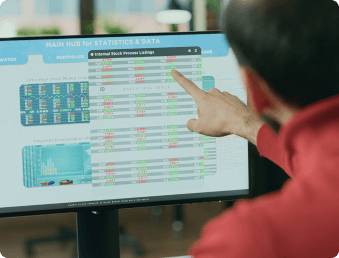Online trading can be an exciting and lucrative venture, but it can also be overwhelming for those just starting. Understanding the basics and having a clear strategy are crucial for success. This guide will walk you through the essential steps and considerations for beginner traders looking to dive into the world of online trading.

Understanding Online Trading
Online trading involves buying and selling financial instruments such as stocks, forex, commodities, or cryptocurrencies through an online platform. The flexibility and accessibility of online trading allow individuals to trade from anywhere with an internet connection. However, it’s essential to grasp the fundamentals before diving in.
Choose the Right Broker
Selecting a reputable broker is a critical first step. Look for brokers that offer user-friendly platforms, robust customer support, and competitive fees. Make sure they are regulated by financial authorities to ensure the safety of your funds. Many brokers offer demo accounts, which can be a great way to practice trading without risking real money.

Learn the Basics
Before you start trading, take the time to learn about the different types of trading (such as day trading, swing trading, and long-term investing) and how the markets work. Familiarize yourself with key terms and concepts such as market orders, limit orders, stop-loss orders, and leverage.
Develop a Trading Plan
A well-thought-out trading plan is essential for success. Your plan should include your trading goals, risk tolerance, and strategies for entry and exit. Decide on the amount of capital you are willing to invest and establish rules for managing your trades. Stick to your plan to avoid impulsive decisions driven by emotions.
Start Small and Practice
As a beginner, it’s wise to start with a small investment and gradually increase your exposure as you gain experience and confidence. Utilize the demo account offered by your broker to practice your strategies without financial risk. This will help you understand how different market conditions affect your trades.
Focus on Risk Management
Effective risk management is crucial in trading. Use tools such as stop-loss orders to protect your investments and prevent significant losses. Never risk more than you can afford to lose, and diversify your investments to spread risk across different assets.
Stay Informed
The financial markets are dynamic and constantly changing. Stay updated with the latest market news, economic indicators, and financial reports that can impact your trades. Follow trusted financial news sources and consider subscribing to market analysis services.
Evaluate and Adjust
Regularly review your trading performance to identify what’s working and what needs improvement. Keep a trading journal to track your trades, strategies, and outcomes. Adjust your strategies based on your experiences and evolving market conditions.
Conclusion
Online trading offers great opportunities for those willing to invest time in learning and practicing. By understanding the basics, choosing the right broker, developing a solid plan, and focusing on risk management, beginners can navigate the complexities of online trading more effectively. Remember, trading is a journey of continuous learning and adaptation—stay patient and persistent as you build your skills and confidence.



